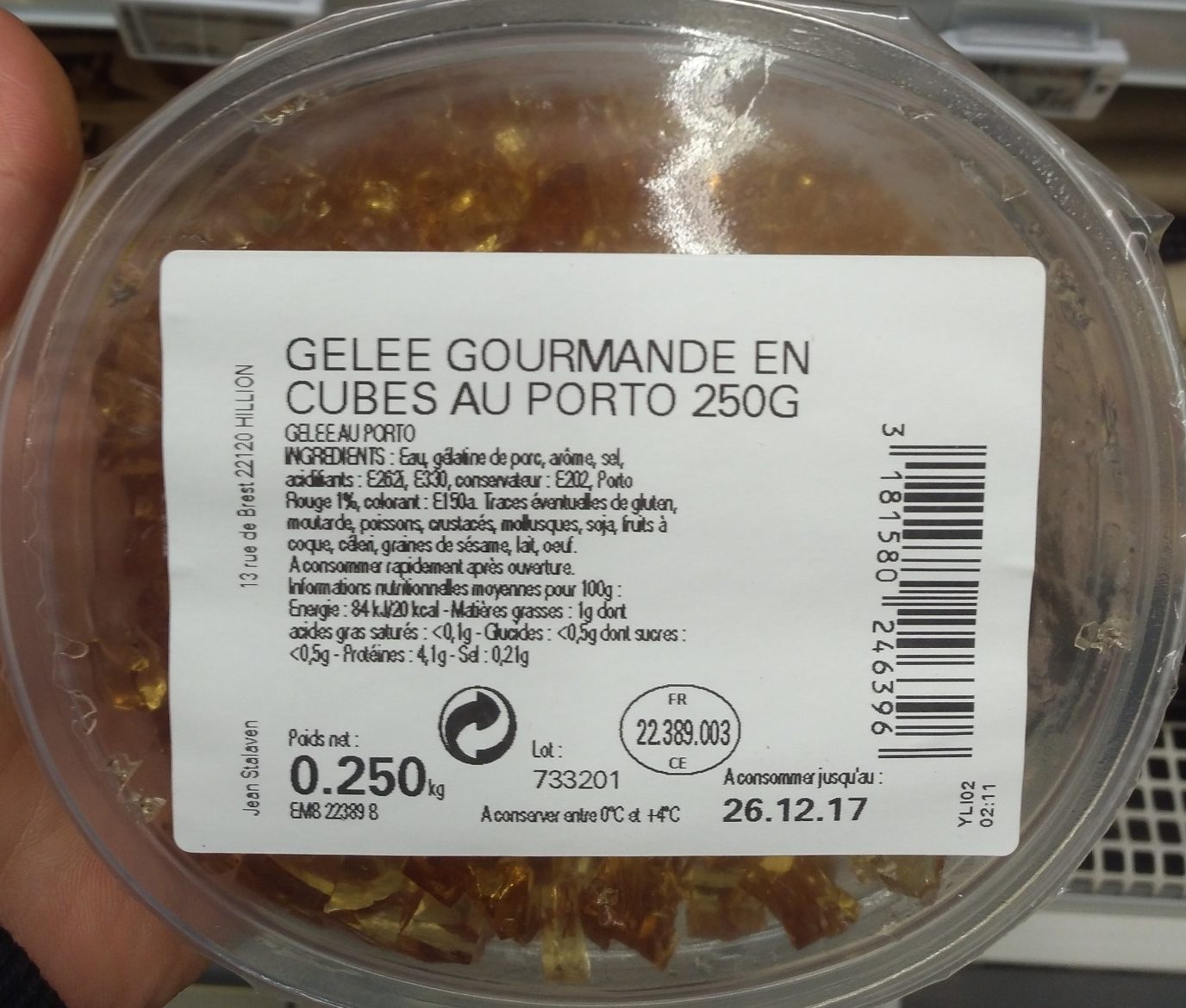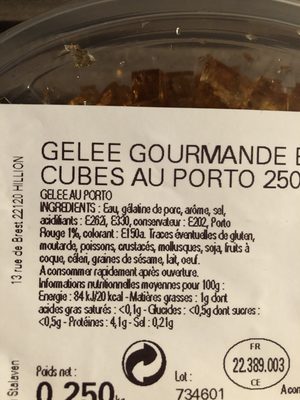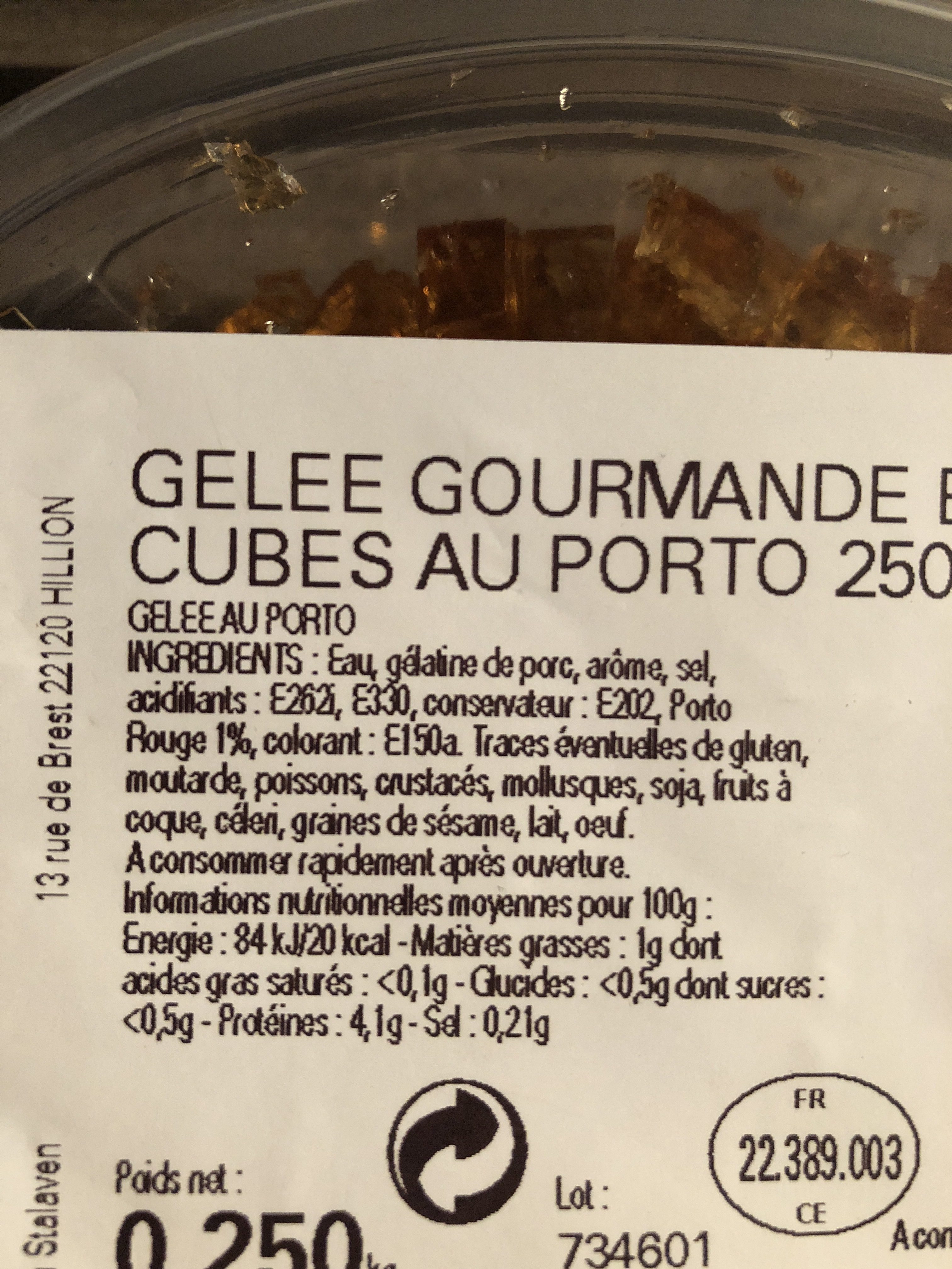Gelée gourmande en cubes au porto - Sans marque - 250 g
This product page is not complete. You can help to complete it by editing it and adding more data from the photos we have, or by taking more photos using the app for Android or iPhone/iPad. Thank you!
×
Barcode: 3181580246396 (EAN / EAN-13)
Quantity: 250 g
Brands: Sans marque, Jean Stalaven
Categories: fr:Gelées au porto
Manufacturing or processing places: France
Traceability code: FR 22.389.003 CE - Yffiniac (Côtes-d'Armor, France), EMB 22389B - Yffiniac (Côtes-d'Armor, France), EMB 22389 - Yffiniac (Côtes-d'Armor, France)
Stores: Cora
Countries where sold: France
Matching with your preferences
Environment
Packaging
Transportation
Report a problem
Data sources
Product added on by tacite
Last edit of product page on by packbot.
Product page also edited by kiliweb, openfoodfacts-contributors, roboto-app, sebleouf, yuka.UzRZREZLVTZyZVZReE1VZitoZnovTmhOM2J2emR6SzNGOHdNSVE9PQ.









